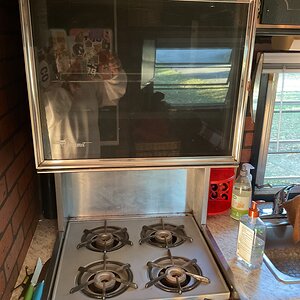Kevin D Pem
RVF 1K Club
- Joined
- Jul 29, 2020
- Messages
- 4,976
- Location
- AZ
- RV Year
- 1984
- RV Make
- Alpinelite
- RV Length
- 26'
- TOW/TOAD
- 2016 Ram 1500
- Fulltimer
- Yes
Just my .02 the UVW will change with the weather. I get the concern with UVW, even if the only concern is payload!
So with payload, we want to load what we feel important, right?
GCVW is the number we should consider when looking for the tow vehicle. For that matter how we load, but just as important is can we take the barbie right?
If we only camp in cooler climate we may for go the A/C so we can take the gas fireplace, or the other way around...
Simply put, I get the concern about UVW, the payload should be my choice.
So with payload, we want to load what we feel important, right?
GCVW is the number we should consider when looking for the tow vehicle. For that matter how we load, but just as important is can we take the barbie right?
If we only camp in cooler climate we may for go the A/C so we can take the gas fireplace, or the other way around...
Simply put, I get the concern about UVW, the payload should be my choice.












